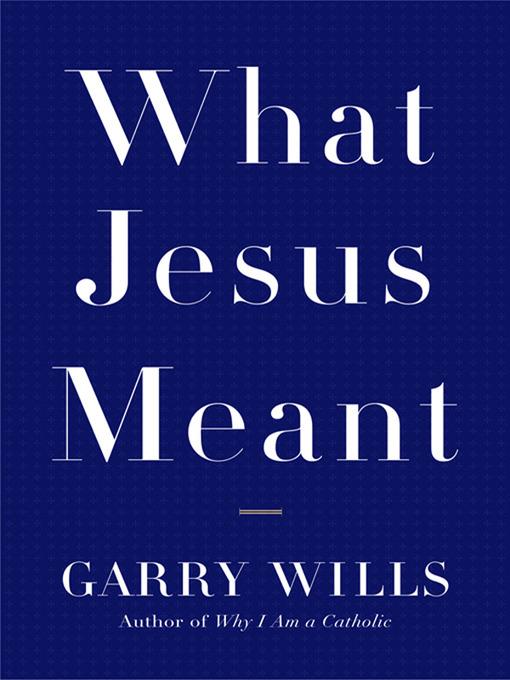
What Jesus Meant
کتاب های مرتبط
- اطلاعات
- نقد و بررسی
- دیدگاه کاربران
نقد و بررسی

January 16, 2006
Christianity has been twisted and warped to such an extent that not even Jesus would recognize it now. This is Wills's thesis in his stimulating, fresh look into the life and message of Jesus of Nazareth. The now-ubiquitous phrase, "What Would Jesus Do?" encouraged Wills, professor of history at Northwestern University and prolific writer on contemporary religion, to take a closer look at how the Christian message has been used and abused in recent times. Wills believes that most Christians don't understand Jesus' startlingly radical message, so they should not claim to have knowledge of how he would act today. People of all political persuasions have used Jesus' words to rationalize a domesticated, flaccid Christianity that upholds the status quo, or, worse yet, supports discrimination toward those who are on the margins. This attitude, according to Wills, completely misses the truth that Jesus "walks through social barriers and taboos as if they were cobwebs." Readers who are familiar with Wills's writing know that he is not shy about critiquing organized religion, and they will not be disappointed. Although his arguments lean toward hyperbole at times, at its core this book invites Christians toward more honest reflection on the life and message of the one they call "Savior."

February 1, 2006
Wills, one of America's most prolific scholars and a Pulitzer Prize winner, has graced us with what at first appears to be just another book about Jesus, but it is more than that. Though the author's collective writings are numerous and varied, he has always returned to church history (especially Catholic history, e.g., "Papal Sin") with particular affection. This book can be seen in the larger framework of Wills's intellectual history, which has often dealt with the power structures of the church. Here he tries to understand Jesus as someone who, without the strictures of religion and politics, managed to transcend the powers and faults of the human condition and explicates the individual Jesus Christ through the Gospels. Addressing the meaning of Jesus' teachings in the first century C.E., the book serves as a tool to combat the politicization of Jesus in the modern world, but this is sure to be a contentious point for some readers. A fresh look at an old topic, this is recommended for public, church, and theological libraries. [See Prepub Alert, "LJ "11/15/05.]" -Anthony J. Elia, American Theological Lib. Assn., Chicago"
Copyright 2006 Library Journal, LLC Used with permission.

December 15, 2005
From the foreword's critique of the initials WWJD (What Would Jesus Do?) and politicians who claim to be guided by the slogan, Wills' explication of the canonical expressions of Jesus may seem to merit the publicity pitch that the book is a pre-midterm-elections volley in the politico-religious theater of the culture wars. It is much better than such touting suggests. For instance, instead of co-opting the Christian Right-associated WWJD for liberals, Wills directs us to such things as 12-year-old Jesus sneaking off to palaver at the temple without telling his parents, and grown-up Jesus telling others to hate their parents and asserting "I am the truth." This is scandalous behavior in a person, comprehensible only of "a divine mystery walking among men," Wills says. Looking more closely at Jesus' words and deeds, Wills says we find God with us in them, and an inescapably egalitarian message of love. Jesus establishes no institutions and endorses no political structure or leader. Indeed, he rails against religious hierarchy in the harshest terms, and he utterly divorces religion from politics. Yes, he preaches justice, but beyond justice, he preaches the personal acceptance and security of love. Wills' dissent from certain pro-clerical and exclusivist statements Benedict XVI has made assure him the continued opprobrium of institutional church hardliners, but his portrayal of Jesus the radical is so profoundly familiar as to be irrefutable.(Reprinted with permission of Booklist, copyright 2005, American Library Association.)

























دیدگاه کاربران